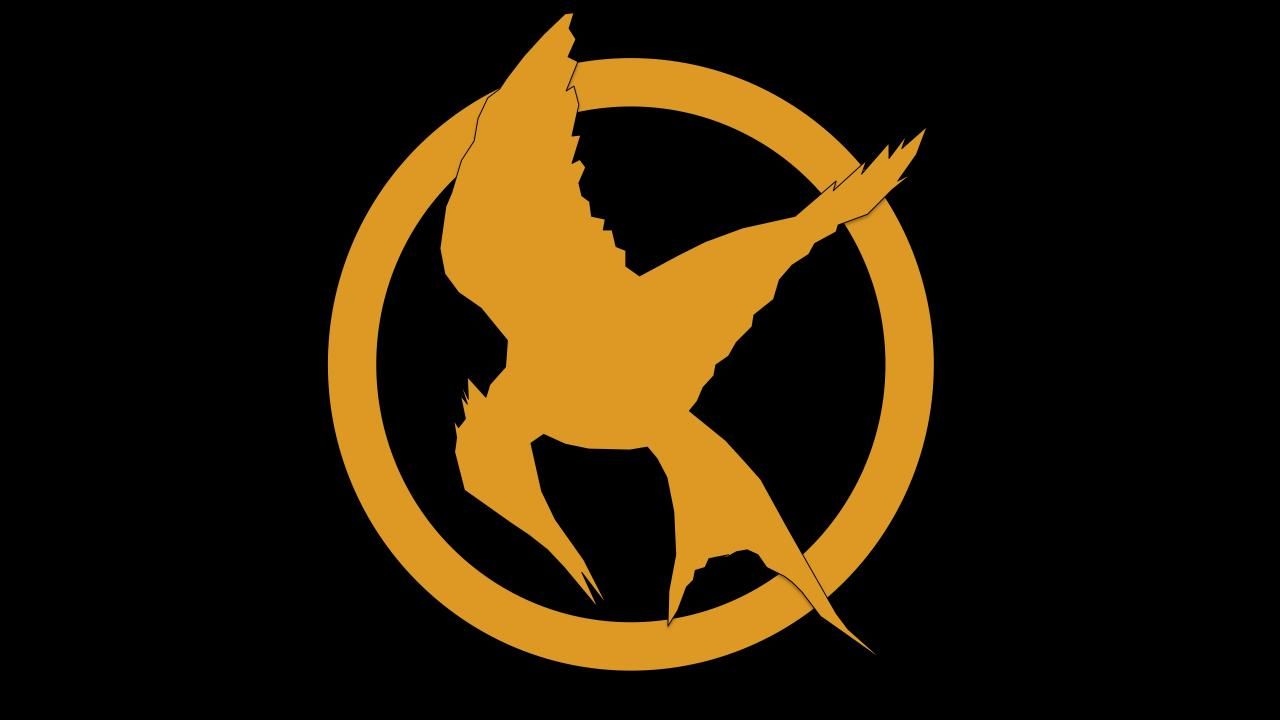Recently, as I approached the breakfast table I caught the tail end of a conversation my teenagers were having that ended with my son explaining to one of his younger sisters, “I would definitely kill you first if we were selected as tribute.” I was only mildly relieved to find that they were talking about The Hunger Games, the novel by Suzanne Collins and recent blockbuster movie. I’d heard mention of it, but given the way it had ruined my breakfast, I thought I should investigate further. After reading the book and watching the movie, here is a brief plot summary and a few thoughts.
The plot is fairly straightforward but a bit grisly: In a post apocalyptic America, known as Panem, the country is composed of twelve districts tyrannically ruled from the capital city. The districts essentially exist to serve the capital city’s lavish self-indulgent lifestyle, while life in the districts is bleak. To keep the districts subjugated and in line, the capital hosts the annual Hunger Games, a gladiatorial contest in which each district is required to offer two “tributes”, one boy and one girl between the ages of twelve and eighteen selected at random, who are required to battle the other tributes to the death in an immense arena carefully staged to appear as a wilderness or some other challenging environment. Twenty four children enter the arena, but only one tribute can survive as the victor. Okay, interesting plotline but not exactly new. Isn’t this just sort of a cross between The Lord of the Flies and Little Women? A Thunderdome remake for teens? Why all of the hype? Is it just one more occasion to fret over the things that are capturing our children’s imaginations? Maybe. But as I have talked to my kids about it, I’ve found that it’s not just the violent action that excites them, but larger questions of life that resonate with them at a much deeper level. Questions that provide an opportunity for us to disciple our kids rather than snort with Christian indignation.
In a setting in which every action determines survival, the Hunger Games invites us to wrestle with some very basic questions: What is the point of existence or survival? Is there anything more important than my own wants and needs, no matter how pressing? Is there anything worth living or dying for? These questions are explored largely by the two primary characters, Katniss and Peeta, the two tributes selected from District 12. Katniss, a teenaged girl, is the ultimate survivalist. After her father’s death, her mother withdrew into a catatonic state, leaving Katniss alone to fend for her mother and younger sister. She has to hunt in the forest and trade what she kills, only just keeping them all from starving. Her gaze in life has narrowed to the immediate needs of survival. She has little room for sentimentality, feelings, or things that might weaken her for the tasks of survival at hand – working, hunting, trading, and providing. She has decided that she will never marry and never have children. Peeta, the son of the local baker, lives a life that is marginally better, but he is unwilling to simply survive. In fact, we learn that Peeta is in love with Katniss, but this doesn’t come out until after they are selected for the games and presumably destined to kill each other. But Peeta will not kill Katniss. In fact, though he has none of the survival skills that she has, he works to protect her from the other combatants and it nearly costs him his life. Throughout the story, Peeta proves that he genuinely loves Katniss and would sacrifice himself for her without hesitation. Meanwhile Katniss is caught up in the game, the strategy, half pretending to love him, and assuming Peeta is pretending also as a way to garner favor with the audience that is able to bestow life saving gifts on contestants they like.
But through her time in the arena and her growing affection for Peeta, we witness her awakening to the larger issues of life. Isn’t life about more than surviving? Is it worth surviving just to provide pointless and cruel entertainment for others? Who am I really, and what is my life really about? Peeta wants to live, or die, for something more. He explains to Katniss before they enter the games,
“I want to die as myself. Does that make any sense?” he asks.
I shake my head. How could he die as anyone but himself?
“I don’t want them to change me in there. Turn me into some kind of monster that I’m not.”
I bite my lip, feeling inferior. While I’ve been ruminating on the availability of trees, Peeta has been struggling with how to maintain his identity. His purity of self.
The Hunger Games challenges us to answer these basic questions of existence and identity. And as the title suggests, The Hunger Games call our attention to one of the characteristics that most defines us, our appetites. The things that you hunger for most, the things that you believe you must have to survive, these are the things that most powerfully shape your identity.
So ask yourself and your teens, “What is my personal hierarchy of needs?” Is mere survival enough, or is it fame, wealth, prestige, or power? Or maybe something a bit more noble like country, kin, or romance? Whatever you need the most, whatever you hunger for, that’s what you will construct your life around. Of course, pondering those questions is easy in dispassionate moments. You can give the “right” answers, or at least the answers you think you’re supposed to give. But the more accurate answers emerge when you face trials and temptations, especially when you face death itself. And that’s what the arena does in The Hunger Games, it is the crucible that exposes one’s deepest needs and appetites, and reveals one’s truest self.
Of course, the Bible asks the very same questions of us, using very similar imagery. Time and again, God calls his people to himself by leading them out of the familiar and into a wilderness. In this wilderness, the urgent needs of survival require a radical assessment of their identity and what their life is really about. The Israelites escape Egypt and face a long forty year journey through the wilderness. David hides in caves while he is hounded by Saul. Elijah flees a murderous Jezebel by running into the wilderness, where the only mercy he asks of God is death. In every case God brings his people to a point in which they have to reckon with their identity as his children. They can live for their own agendas, wants and needs, or choose to trust in their Heavenly Father.
We travel in our own wildernesses and face the same choice. When the water runs low, when our stomachs growl, when we’re afraid, where do we turn? Do we live like animals, by instinct, whose most basic need is survival, as if survival alone were enough? Or does the wilderness expose and refine our true identity as children of God who turn to him, cry out for his rescue, and are nourished by his love for us? Let’s be honest. We find it hard to trust God. We’d rather trust in ourselves and pursue our own agenda, what’s best for us. So mercifully, graciously, God sent his son into the world to do what we are unable to do for ourselves. For forty days and nights Jesus went without food or water, literally living on faith alone. He faced the wilderness and not only survived, but did so by faith, in complete trust and obedience to his Father. And he kept it up all the way to the cross.



